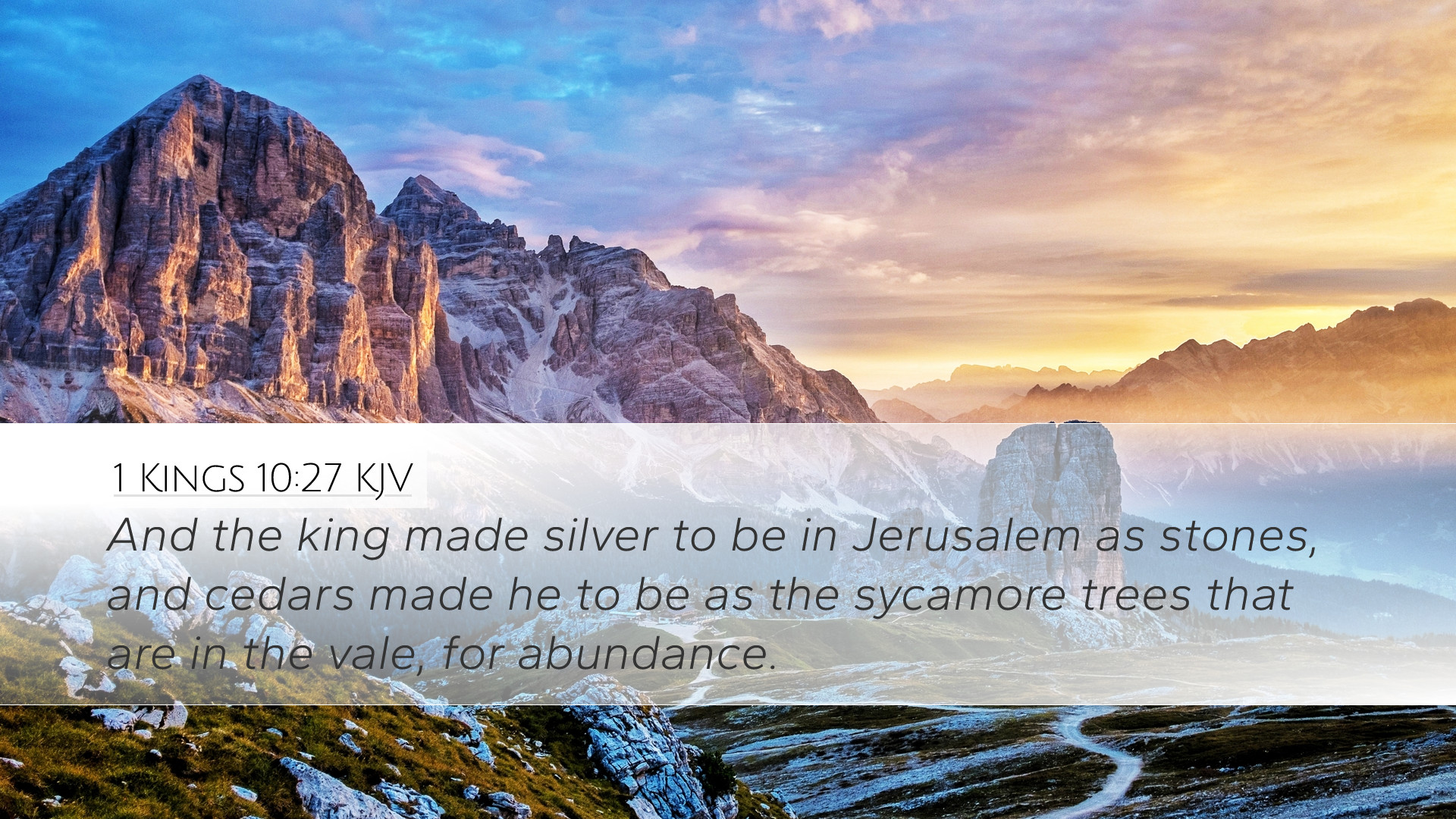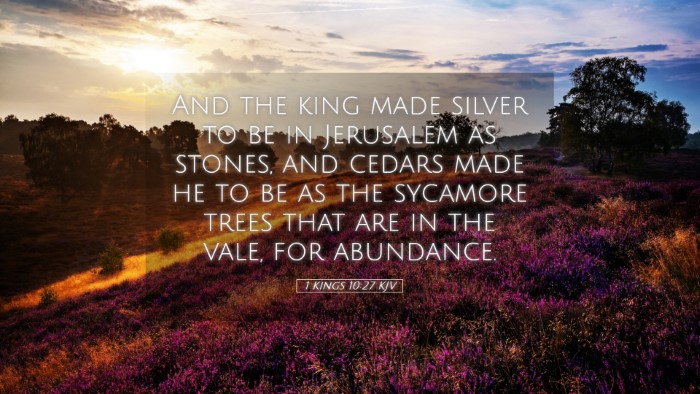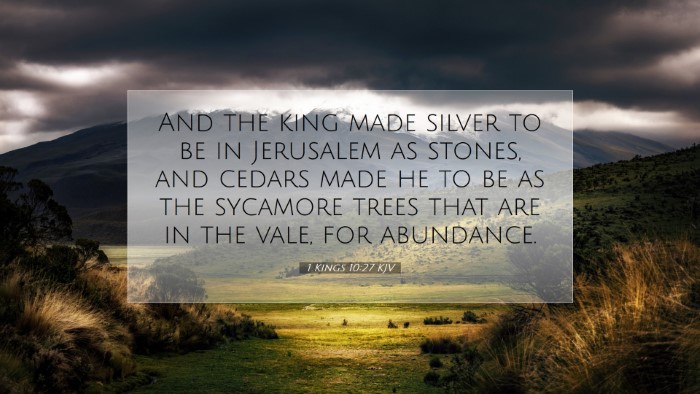Commentary on 1 Kings 10:27
Bible Verse: "And the king made silver to be in Jerusalem as stones, and cedars made he to be as the sycamore trees that are in the vale, for abundance."
This verse illuminates the immense wealth and prosperity during the reign of King Solomon. In this commentary, we will delve into insights from various public domain sources, presenting a comprehensive overview that addresses the theological implications and historical context of this passage.
Historical Context
1. The Golden Age of Solomon: Solomon's reign is often referred to as a golden age in Israel's history. His wisdom brought about a formidable yet prosperous kingdom, marked by peace and abundance. The building projects, including the Temple, reflect God's covenant faithfulness to Israel.
2. Trade and Wealth: Solomon's extensive trade networks fostered economic growth. The reference to silver being as plentiful as stones indicates the extraordinary wealth he amassed, much of which came through trade with foreign nations.
Verse Analysis
The key elements of this verse provide profound insights into both the material and spiritual prosperity of Solomon's kingdom.
1. Abundance of Silver
This imagery highlights the following themes:
- Divine Blessing: The abundance is not merely a testament to human achievement but is seen as God's blessing upon Solomon due to his request for wisdom to govern.
- Symbolism of Silver: Silver, often associated with purity and redemption, reflects the favor and providence of God upon His people.
2. Comparison with Stones
The comparison of silver with stones is significant:
- Equality with Common Materials: This suggests that wealth was so common that it could be viewed with the same ordinariness as stones. Here, we can see the emotional distance from material wealth.
- Spiritual Implications: This point may also provoke reflection on the nature of value and the heart's attachment to material possessions versus spiritual truths.
3. Abundance of Cedars
The reference to cedars as plentiful as sycamores conveys:
- Valuable Resources: Cedars of Lebanon were highly valued for their durability and beauty, utilized prominently in temple construction.
- Contrast with Common Trees: The sycamore, being a common tree in the valley, signifies that despite the abundance, even precious items became common under Solomon’s reign.
Theological Reflections
From a theological standpoint, this verse beckons us to consider the following:
1. The Nature of Wealth
Commentators like Matthew Henry emphasize that wealth, while a blessing, can also be a distraction. The verse is a reminder of how God’s provisions should lead us to worship rather than greed.
2. God's Sovereignty and Provision
Albert Barnes notes that the reality of Solomon's wealth is a testament to God's sovereignty in providing for His people, fulfilling His plans through His chosen leaders. The abundance illustrates God's intentions for His creation.
3. The Warning Against Materialism
This abundance can serve as a cautionary tale for modern believers. Adam Clarke reminds us that while Solomon’s wealth was extraordinary, it did not equate to spiritual superiority or divine favor. True richness in the eyes of God is found in humility and service.
Conclusion
1 Kings 10:27 encapsulates the prosperity of Solomon’s reign, serving as both a historical account and a deep theological lesson. It challenges readers to view wealth not as an end in itself but as a tool for God’s glory and service. As we reflect on this verse, let us remember the ultimate source of our blessings and the responsibility that comes with them.


